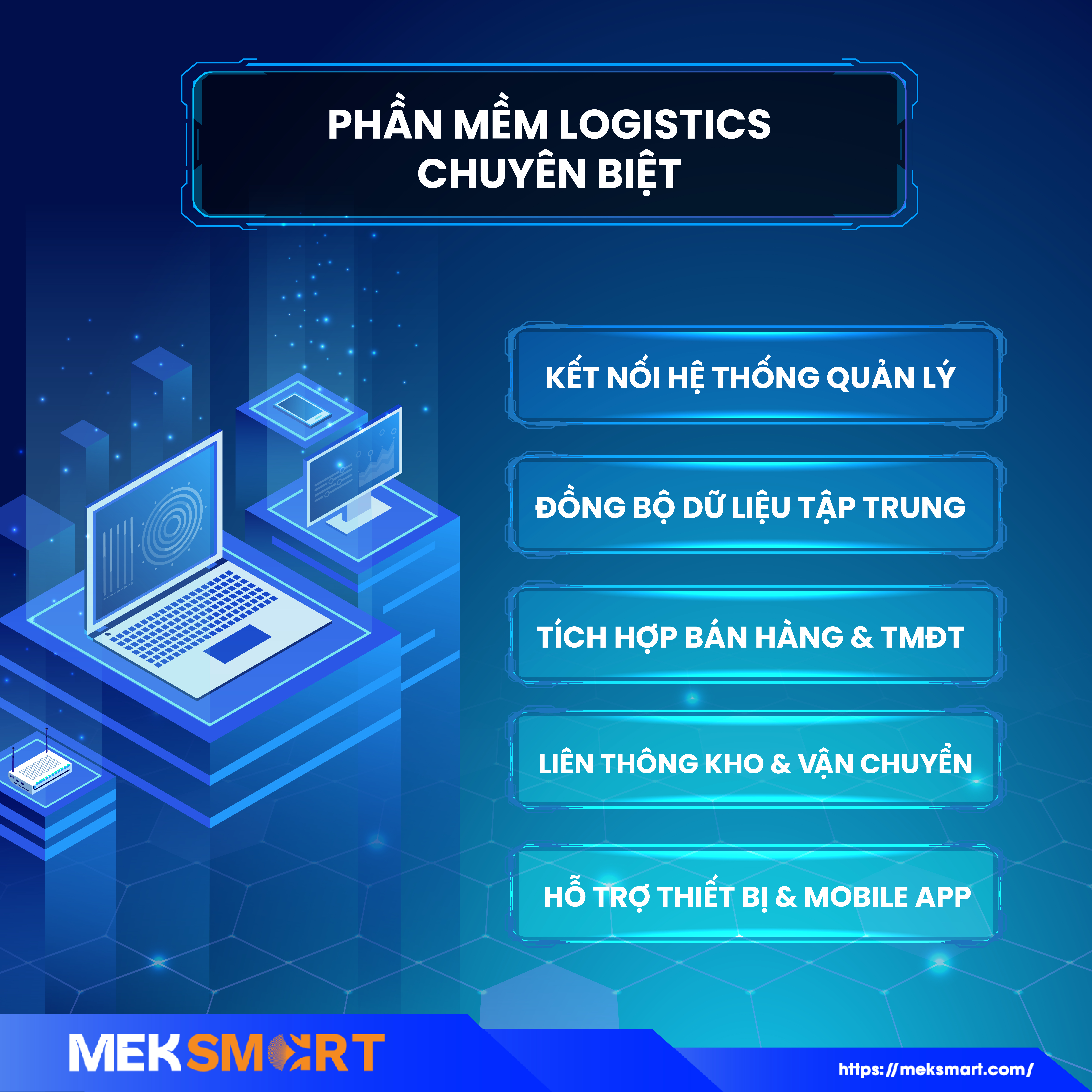MEKSMART
GENERAL NEWS
Author: Meker Meksmart
Update: 11/10/2024
𝐌𝐄𝐊𝐒𝐌𝐀𝐑𝐓 | LOGISTICS TECHNOLOGY INDUSTRY
In recent years, Logistics Technology has become a "hot" choice for young people looking for opportunities to develop in a global field with strong growth potential. Logistics Technology is not only considered the "backbone" of the modern economy but also a field of study that offers diverse and attractive career opportunities. So what is Logistics Technology and why does it attract so much attention?
What is Logistics Technology?
Logistics Technology is a field of study that focuses on planning, implementing and controlling the process of transporting, storing and distributing goods from the place of production to the hands of consumers effectively. The main goal of this field is to ensure that logistics activities take place optimally, minimizing costs while still fully meeting the requirements of time and service quality. This is a highly applied field, requiring a combination of professional knowledge and the ability to use modern technologies to solve problems in the supply chain.

What will students learn in Logistics Technology?
When studying Logistics Technology, students will be equipped with a range of knowledge from basic to advanced, along with the necessary skills to be able to work in a professional logistics environment.
Basic knowledge
- Economics: Understanding the laws of the market, how the economy works and the impact of economic factors on logistics.
- Management: Basic principles of management and organization, helping students to be able to manage supply chains and logistics activities effectively.
- Statistics and Mathematics: Skills in analyzing data and applying mathematical models to optimize logistics activities.
Specialized knowledge
- Transportation: Understand different means of transport such as road, sea, air and how to manage transportation effectively.
- Warehousing: Learn how to organize, manage warehouses, inventory and optimize the use of storage space.
- Supply chain management: Knowledge of managing the entire supply chain from suppliers to end customers.
- Customs and international trade law: Understand customs procedures, import and export regulations and laws related to global trade.
Soft skills needed in Logistics Technology
To be successful in Logistics Technology, in addition to specialized knowledge, students need to develop important soft skills such as:
- Communication skills: The ability to exchange information effectively with partners, customers and colleagues is a key factor in logistics.
- Teamwork: Logistics is a field that requires close cooperation between many different departments, so the ability to work in a team is very important.
- Problem Solving: Situations that arise during the transportation and storage of goods need to be handled quickly and effectively.
- Negotiation: In commercial transactions, negotiation skills will help logistics professionals reach the best deal for their business.
Technology in Logistics
Students studying Logistics Technology will be trained in the use of specialized software to manage and optimize logistics operations. Some prominent technologies in this field include:
- Warehouse Management System (WMS): Helps manage warehouse operations, from importing and exporting goods to inventory and demand forecasting.
- Transportation Management System (TMS): Optimizes the transportation of goods, helping to reduce costs and increase transportation efficiency.
Career Opportunities in Logistics Technology
With the increasing demand for logistics in the global economy, students graduating from Logistics Technology will have many rich and attractive career opportunities.

1. Logistics Specialist
A logistics specialist is responsible for planning, organizing, and supervising logistics activities. Their job includes monitoring the shipping process, resolving issues that arise, and ensuring that goods are delivered on time.
2. Warehouse Manager
The role of a warehouse manager is to oversee all warehouse operations, including managing the import and export of goods, taking inventory, and ensuring that goods are properly arranged.
3. Transport Specialist
A transport specialist plans and organizes the transportation of goods by various means, ensuring that goods are delivered to the correct location and at the required time.
4. Customs Specialist
A customs specialist is responsible for the import and export of goods, from checking documents to handling issues related to taxes and customs regulations.
5. Logistics Consultants
Logistics consultants provide optimal logistics solutions for businesses, from improving supply chain management processes to advising on effective logistics operations strategies.






